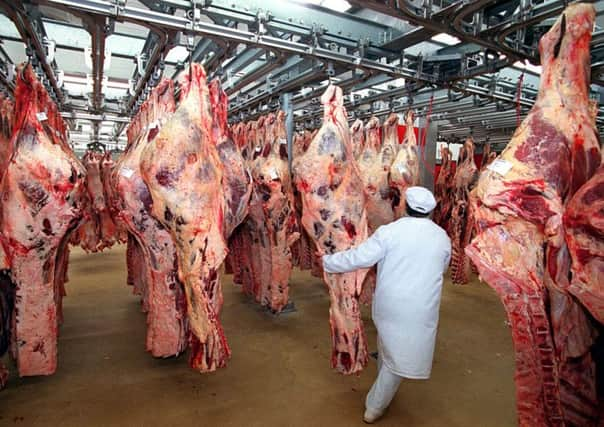Brexit talks highlight fears over foreign meat workers
This article contains affiliate links. We may earn a small commission on items purchased through this article, but that does not affect our editorial judgement.


“Non-UK labour is of fundamental importance to the red meat supply chain in the slaughter and processing sector. Not only is non-UK labour important on the factory floor but it is also key in respect of veterinary inspection,” according to Stuart Ashworth of QMS.
• READ MORE: Farming news
In the processing sector, it is reckoned 52 per cent of the unskilled workforce, 44 per cent of the skilled workforce and 16 per cent of supervisory and management staff are non-UK nationals.
Advertisement
Hide AdAdvertisement
Hide Ad“Without access to skilled domestic or migrant labour the ability of the Scottish red meat sector to contribute to the growth targets set by the Scotland Food and Drink Partnership in its Ambition 2030 strategy published in spring 2017 will be compromised,” Ashworth warned.
The labour concerns do not begin and end in the abattoirs as there are also implications for the provision of labour on Scottish pig farms, where migrant labour makes a “significant contribution” to the farm workforce.
• READ MORE: Meat plants ‘need EU workers’ claim wholesalers
The QMS briefing paper also highlights the importance of non-UK nationals in the statutory food safety inspections and monitoring carried out in Scottish abattoirs. Food Standards Scotland reports that around 98 per cent of their official veterinarians are non-UK nationals.
Looking at the reasons for the reliance on non-UK labour, one factor looks likely to be the slowly falling unemployment rate across Scotland, which for February-April 2017 stood at 4 per cent, down from 4.8 per cent over the whole of 2016 and 5.8 per cent in 2015.
“Additionally, many meat processing businesses are located in areas with unemployment levels below the national average,” Ashworth observed.
The uncertainty over Brexit has already had an effect on the meat processing sector with a rise in labour turnover and a reduction in numbers considering employment in Scotland.
Advertisement
Hide AdAdvertisement
Hide Ad“The sector therefore has two concerns in respect of non-UK labour, one being current established employees leaving and the second a reduction those willing to come to the UK,” said Ashworth.
Typically labour turnover in the meat processing sector and meat hygiene inspection service is 20 per cent or more per year.